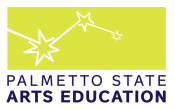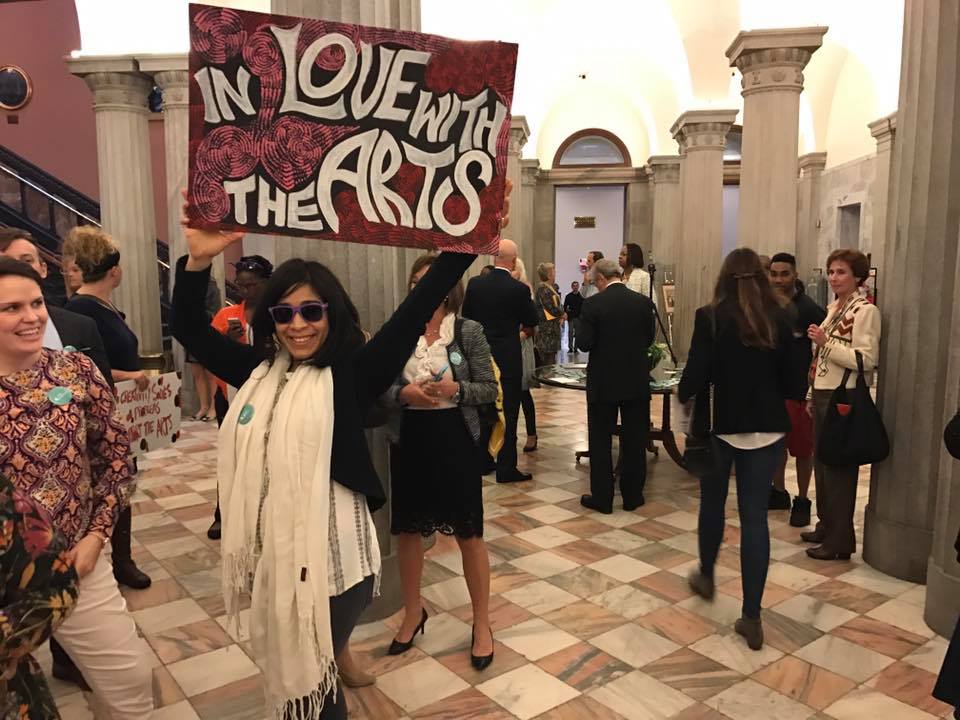|
Whether it’s learning rhythm in first grade, or performing on stage in front of the community in high school, school is commonly the conduit through which many students experience the arts for the first time. These first interactions with the arts are vital on many fronts. Not only does engagement in the arts help improve a student’s overall performance in school, but this initial exposure at school provides an environment that fosters an appreciation for, and understanding of the arts - creating arts supporters years from now when students leave school. Because of the long-term impact of the arts from that first classroom arts exercise, it is important that teachers and administrators to understand how to effect change in their school culture to ensure the arts are seen as a part of educating the whole child and not a frill activity reserved for only a select number of minutes or students per week. At the South Carolina Arts Alliance, we work with schools and organizations (including Palmetto State Arts Education) around the state to help bring some basic advocacy training to teachers and administrators so that the arts can thrive in their classrooms. For Arts Advocacy Week (February 5-9), we’ve partnered up with PSAE to bring you our 6 Basic Advocacy Steps to help empower you to impact your classroom this year. Check them out below! Plug-inSign up for email newsletters, follow folks on social media, watch the news. Understanding the environment you work in is key to successful advocacy. For arts teachers, this includes following your discipline associations (SC Art Educators Association, SC Music Educators Association, SC Theatre Association, SC Dance Association), your own school and district newsletters, your local media, and national groups such as the Education Commission of the States and Americans for the Arts. Know the GameTo impact policy, you have to know how it’s made. Don’t know yet? It’s simple to find out: pick something and follow it. Whether it’s a school policy or state law, find an issue you’re passionate about and follow it. This includes other school department policies, school board issues, and talking with teachers from other schools and districts. Make a ConnectionAs you work on understanding your issue, make note of who is involved and reach out! Find your elected officials on social media and connect with them, introduce yourself at a meeting or event, take your principal out for coffee, get to know your peers, and remember that you are a citizen too! As a citizen, you have a voice, and it should be heard. Be the ExpertRead everything you can about your particular issue. Be armed with knowledge on every aspect - the pros, the cons, the strengths, and the weaknesses. Stay on top of trends not just in education, but also in your discipline. And then share that knowledge with your peers, administrators, and elected officials. When a decision-maker thinks of your issue, you want them to think of you. Set the TableYou can also create opportunities to advocate for the arts, don’t just wait to be asked. Invite your elected officials (including school board members) to performances or events, set up a meeting to talk about an issue, participate in forums, and work with key parent allies. There’s also nothing wrong with a well-timed student showcase to help make your case as you work on your issue! Show UpThis is the most important step. Vote - in every election: presidential, congressional, statehouse, governor, city council, and school board. Attend school board meetings, town hall meetings, and forums. The world is run by those who show up! For more advocacy resources, visit scartsalliance.net. If you would like the South Carolina Arts Alliance to help you or your school work on advocacy strategies for the arts in your classrooms, reach out by calling (864) 314-0712 or emailing [email protected].
0 Comments
Your comment will be posted after it is approved.
Leave a Reply. |
About PSAEPalmetto State Arts Education is a network of professionals dedicated to advancing learning in and through the arts for all students in South Carolina. Categories
All
|




 RSS Feed
RSS Feed